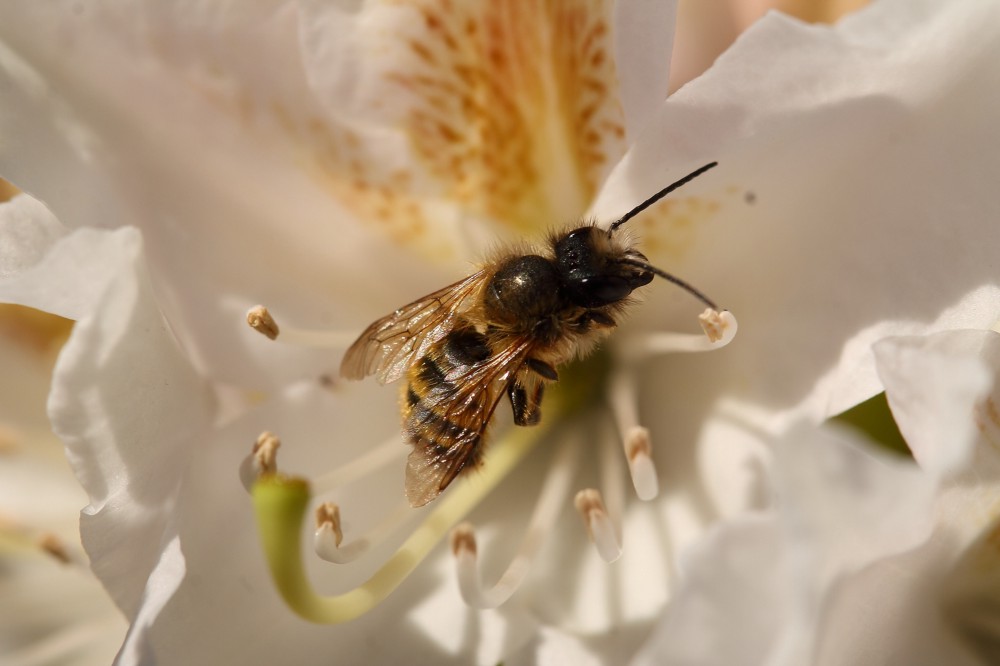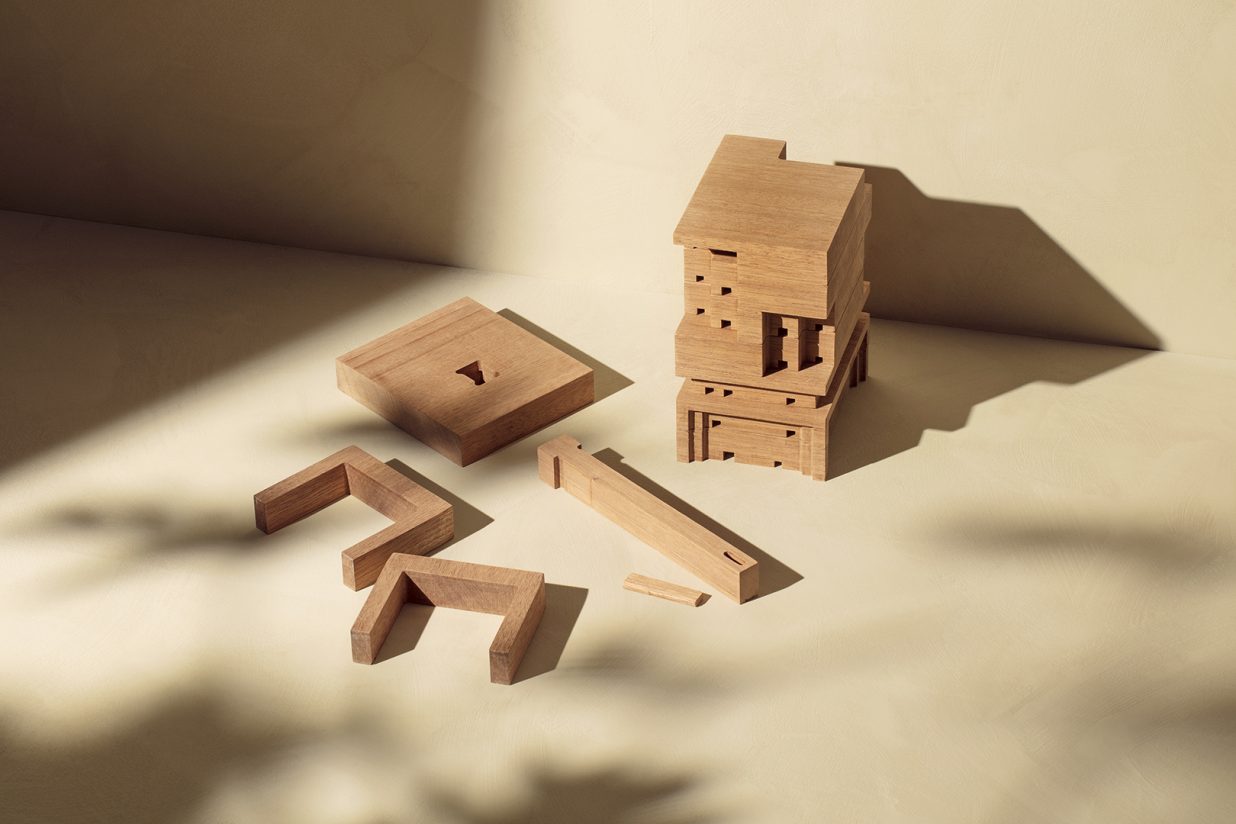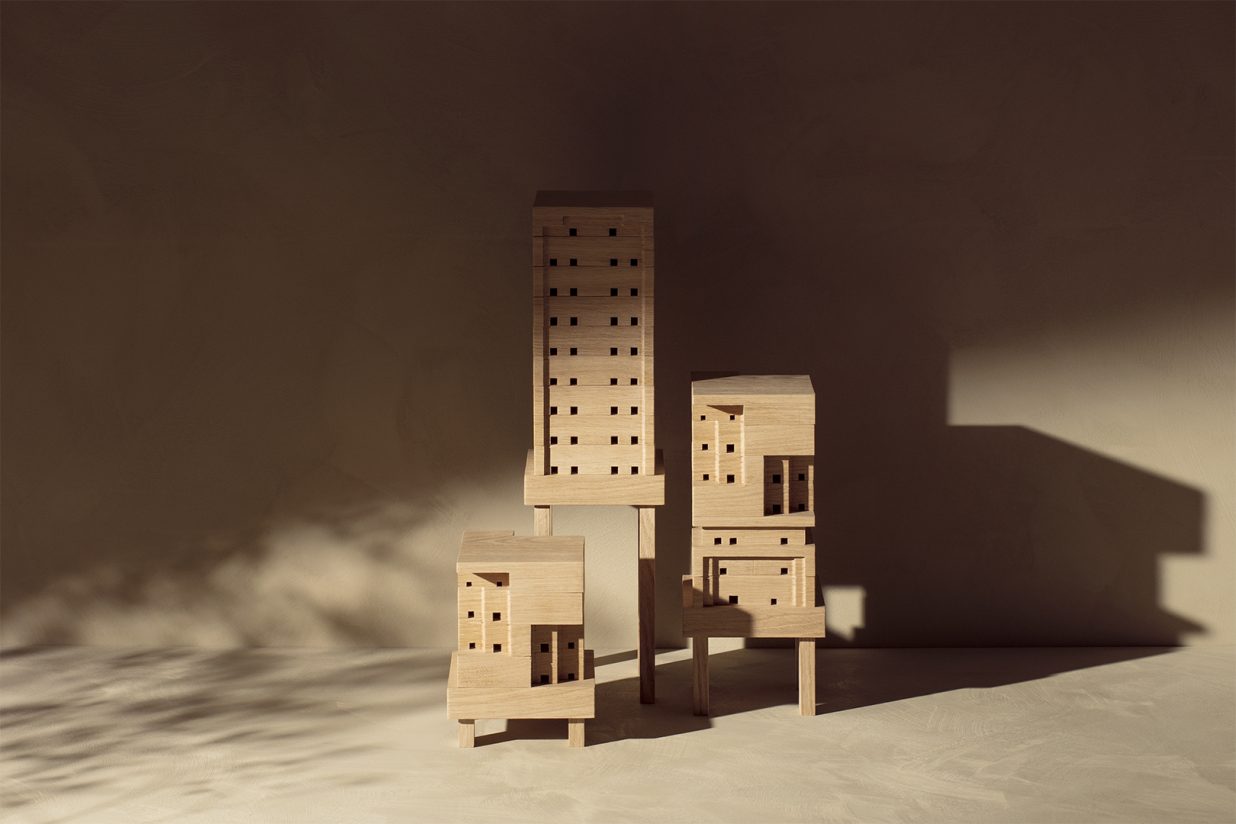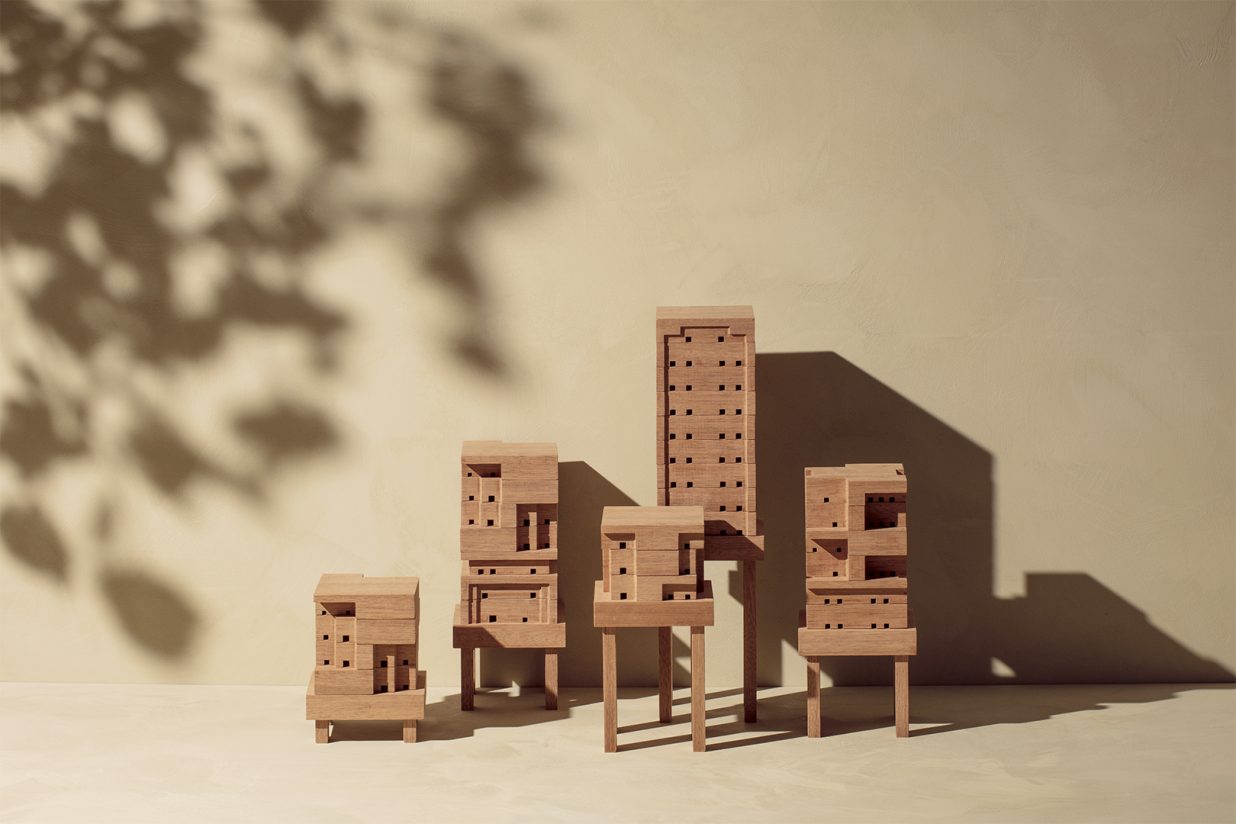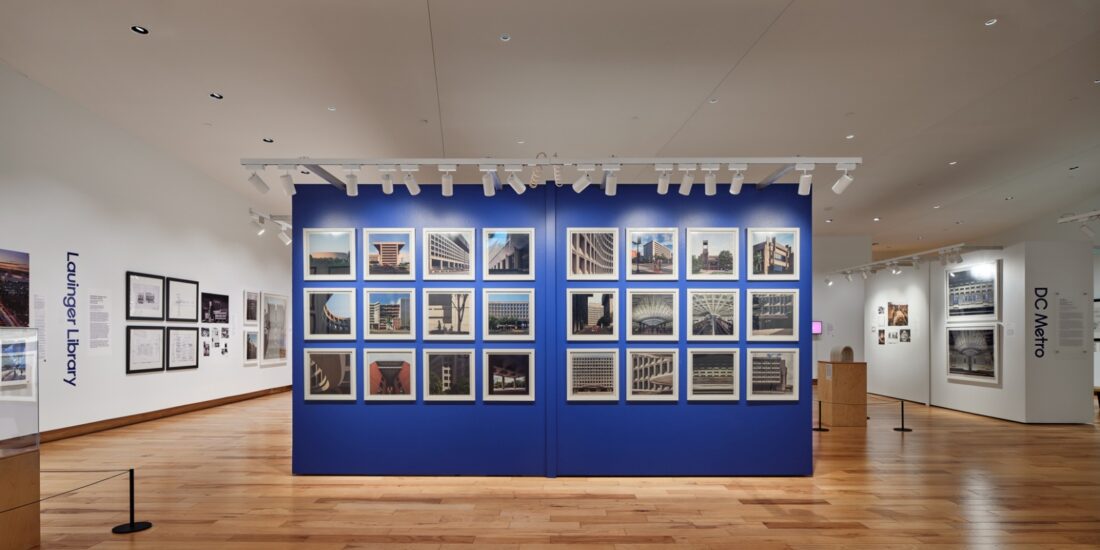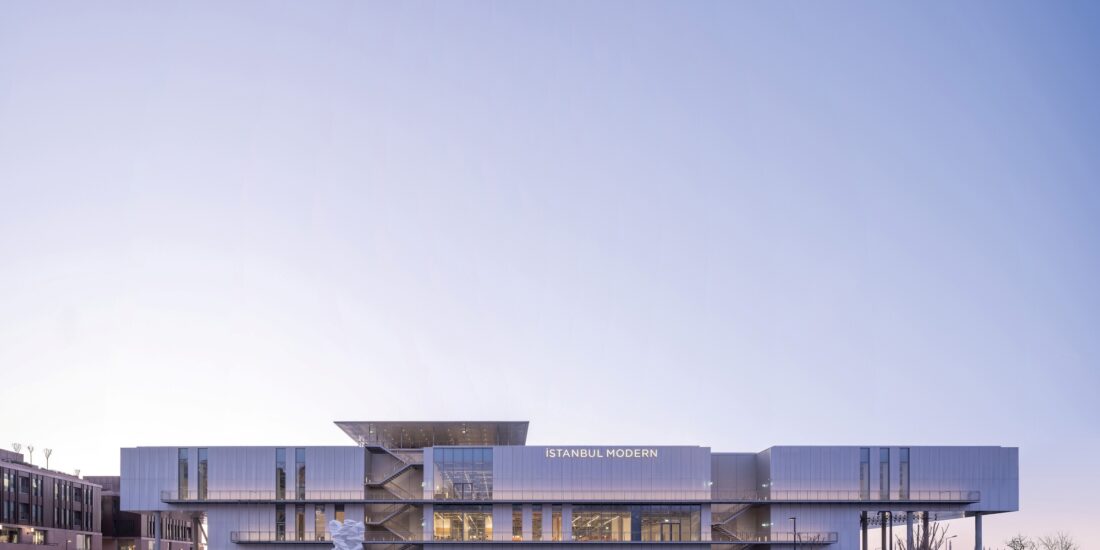IKEA’s Space10 Designs Open Source Bee Homes
IKEA’S design and research lab Space10, in collaboration with technology-driven design studio Bakken &Bæck and industrial designer Tanita Klein launched the BeeHome, an easy design-and-build project that allows even the common environmentalist to create a habitat for the threatened species. By Amiya Hisham
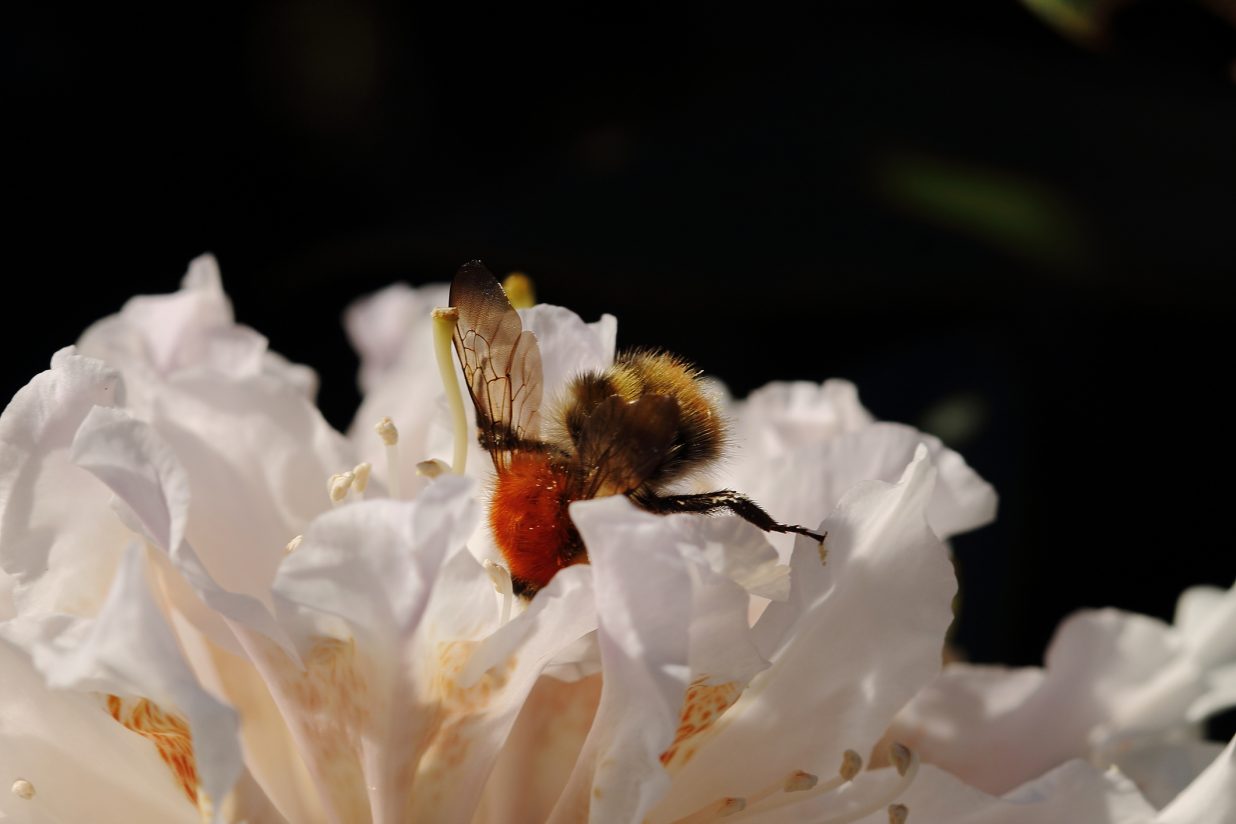
Since they don’t produce honey, solitary bees have nothing to protect and are quite harmless. One solitary bee is capable of pollination by 120 honeybees. Image: Web | Courtesy :Space10
Not all bees produce honey. Not all live in the hive. Solitary bees are different from honey bees and bumblebees and makeup 90% of all the bees in the world. They, among other insects, are pollinators, responsible for 1/3rd of all the food we eat. Due to human encroachment into natural life processes, the bees face the threat of extinction due to loss of habitat. To restore this vital link between humans and nature, IKEA’S design and research lab Space10, in collaboration with technology-driven design studio Bakken &Bæck and industrial designer Tanita Klein launched the Bee Home on United Nations International Bee Day recently. It is an easy design-and-build project that allows even the common environmentalist to create a habitat for the threatened species.
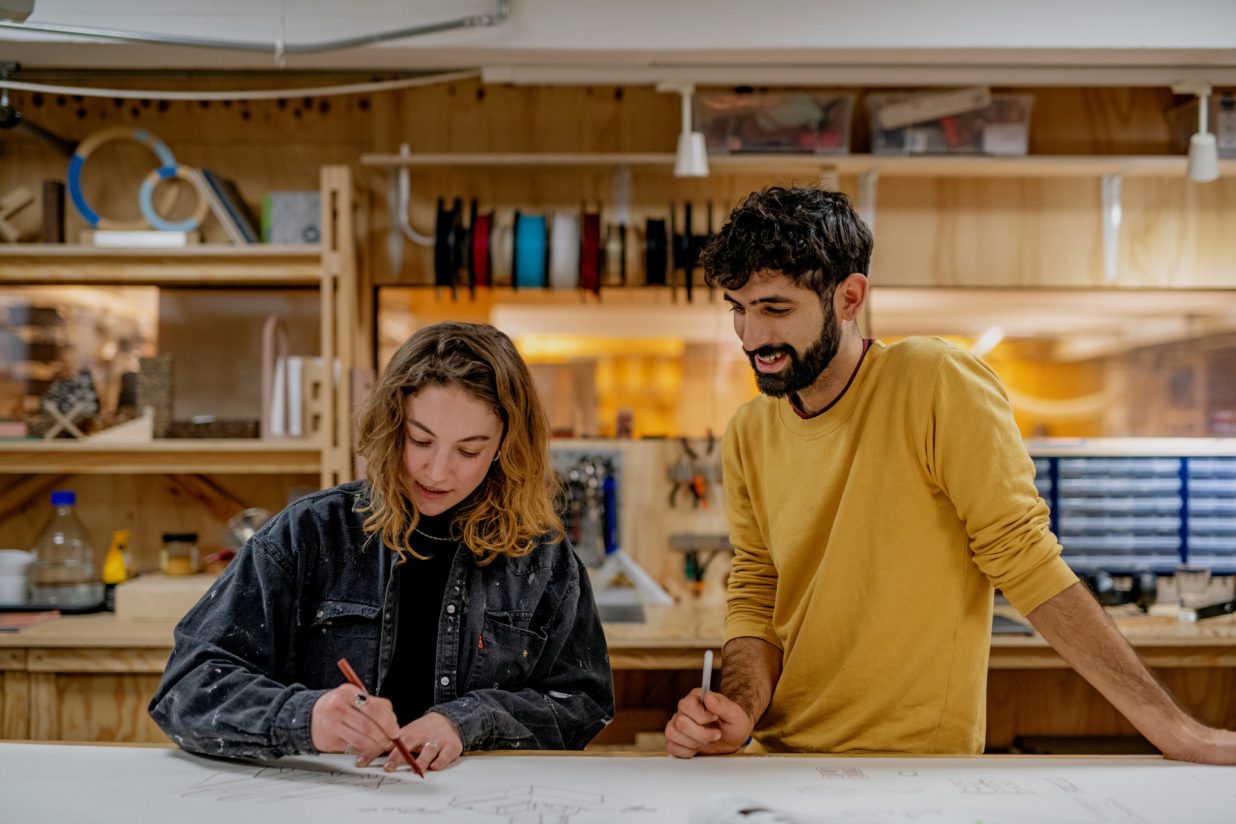 The Bee Home website allows the visitor to carry out the project in three easy steps: Design, Fabricate, Place. One can design the bee home using three simple parameters: by setting the height, number of storeys and desired position to mount the bee home. On generating the desired design, one can go ahead and download a CNC file, complete with instructions and recommendations on how to build and maintain their Bee Home. The final step helps to locate a maker space in the vicinity to fabricate the Bee Home. The finished product resembles a mini skyscraper: a neat stack of wooden planks, cut, perforated and recessed held together by screwless joinery. With a proper choice of hardwood and bare minimum maintenance, these Bee Homes can last up to 30 years.
The Bee Home website allows the visitor to carry out the project in three easy steps: Design, Fabricate, Place. One can design the bee home using three simple parameters: by setting the height, number of storeys and desired position to mount the bee home. On generating the desired design, one can go ahead and download a CNC file, complete with instructions and recommendations on how to build and maintain their Bee Home. The final step helps to locate a maker space in the vicinity to fabricate the Bee Home. The finished product resembles a mini skyscraper: a neat stack of wooden planks, cut, perforated and recessed held together by screwless joinery. With a proper choice of hardwood and bare minimum maintenance, these Bee Homes can last up to 30 years.
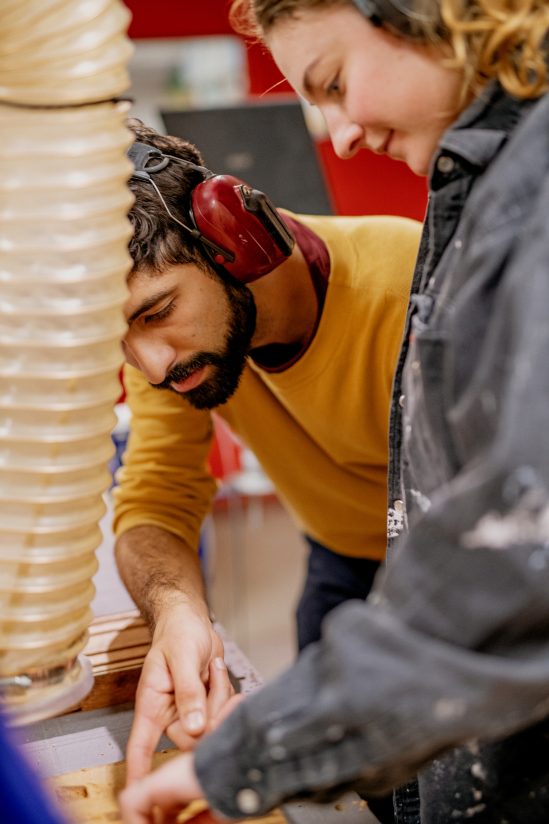
Bhandari and Klein like to describe the design coming together as the ‘Spine Moment’, after the idea of having a spine that goes through all the storeys of the Bee Home. Image: Niklas Adrian Vindelev | Courtesy: Space10
The whole process is made incredibly simple for anyone interested. However, making something seem as simple is not easy, as the team behind the project acknowledges.
The Bee Home project is a meld of traditional craft, technology and digital tools. According to the team, the different strengths and expertise of Space10, Bakken &Bæck, and Tanita Klein merged in a ‘moment of epiphany.
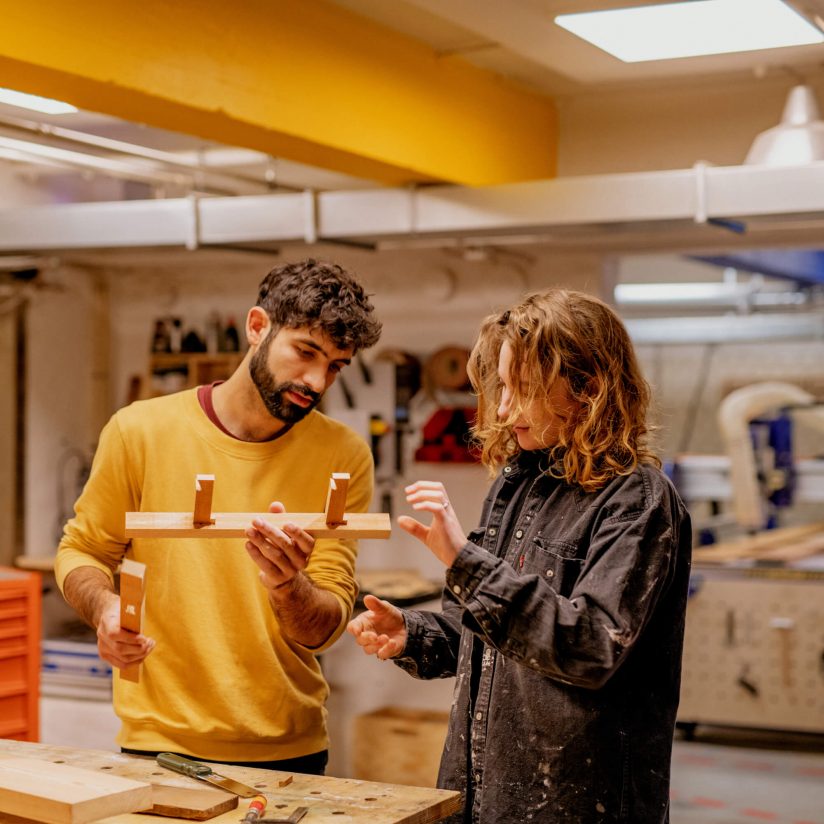
Collaboration is key to design, according to Klein. Image: Niklas Adrian Vindelev | Courtesy: Space10
Every aspect of the simplicity of the design was arrived at, through deliberate, creative design processes. Klein’s vision of building a home for bees had an aesthetic focus, translated through a playful metaphor on the architectural scale. On the one hand, the perforated stacked volumes of wood make a perfect garden sculpture and for the bees, it would be something of a skyscraper, which is really a human house type. Klein’s focus on the aesthetics of the project was complemented by functional inputs by Noé Bhandari, fabrication specialist at Space10, with his hands-on approach and familiarity with materials. The project was integrated onto a digital interface developed by Bakken &Bæck. The website is a lucid platform, with a clean and powerful visual identity in which everything from logotypes to colours and lines was informed by research on bees. Here too, there was a sense of play in the design process, according to Anita Silva, Art Director at Bakken &Bæck. For instance, the logo mark is a custom typeface inspired by nesting tunnels and rounded holes of the Bee Home and the subtle colour palette corresponds to the UV spectrum in which bees perceive colour.
“By designing new interactive experiences, we can create a more sustainable manufacturing process for doing so: one that is truly open-sourced, informed by local living and customizable for many contexts and uses,” according to Myles Palmer, Project Lead at Bakken &Bæck.
The rounding aspect of the design is the ease of use and accessibility. In making the project open-source, the designers have closed “the loop between the physical and digital worlds,” inspiring more people around the globe to protect this vital pollinator species.
Once the Bee Home is designed and fabricated, it can be uploaded onto the Bee Home community map where one can post photos of their finished project. The online community allows its members to connect with fellow Bee Homemakers and appreciate the collective impact that a simple design has prompted through their individual contributions.
To design your own Bee Home and learn more about the project visit: BEE HOME


